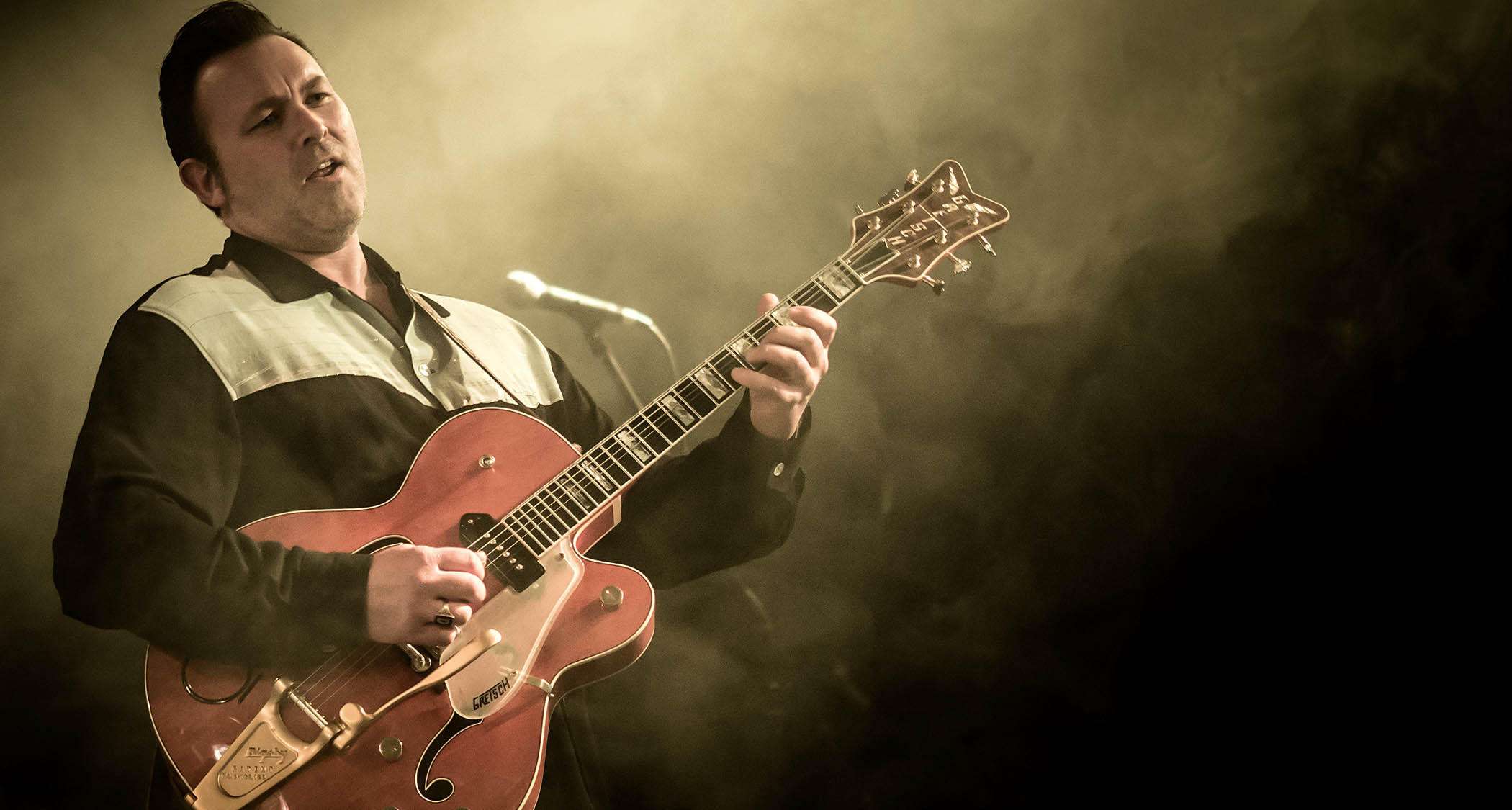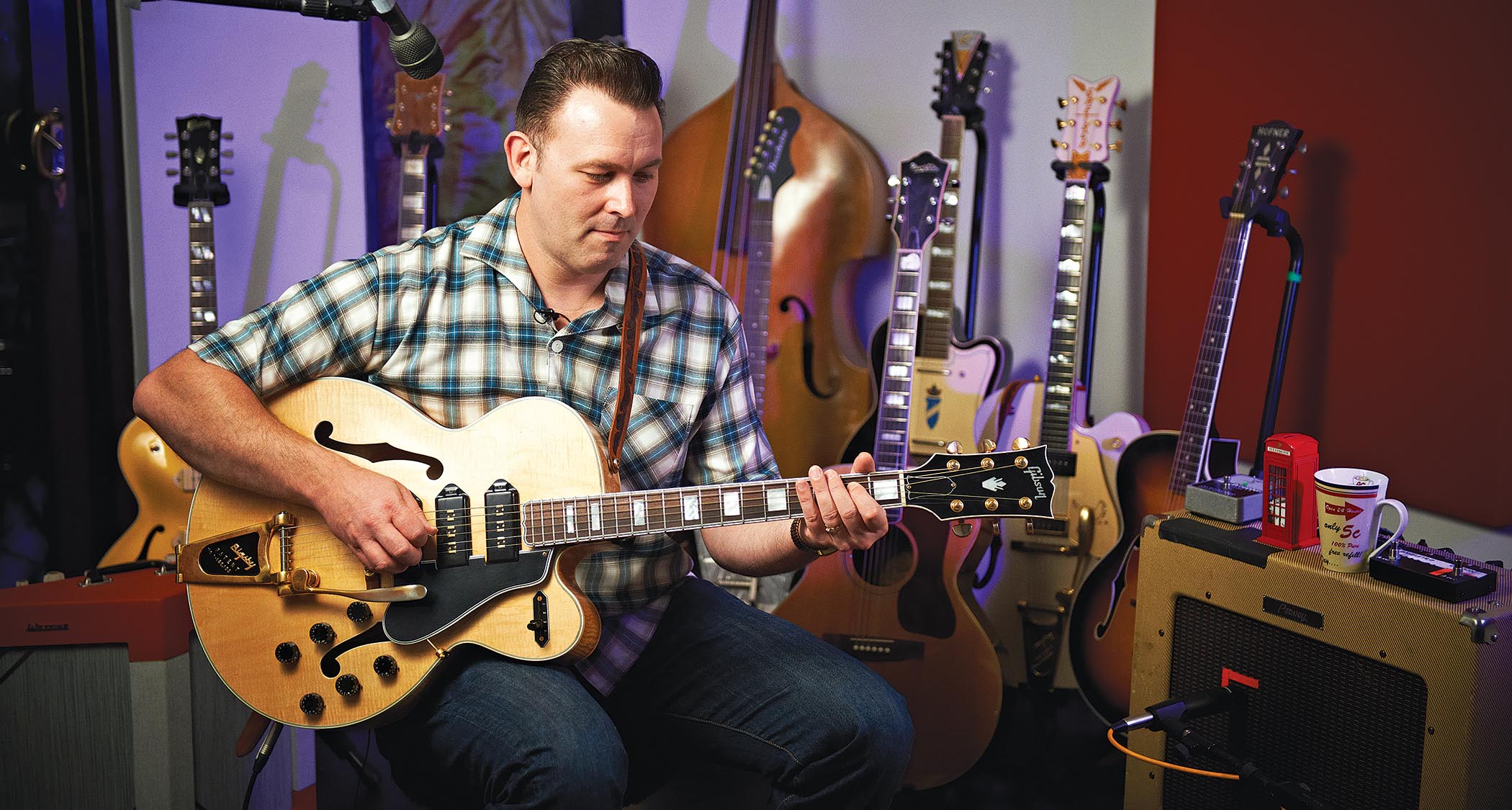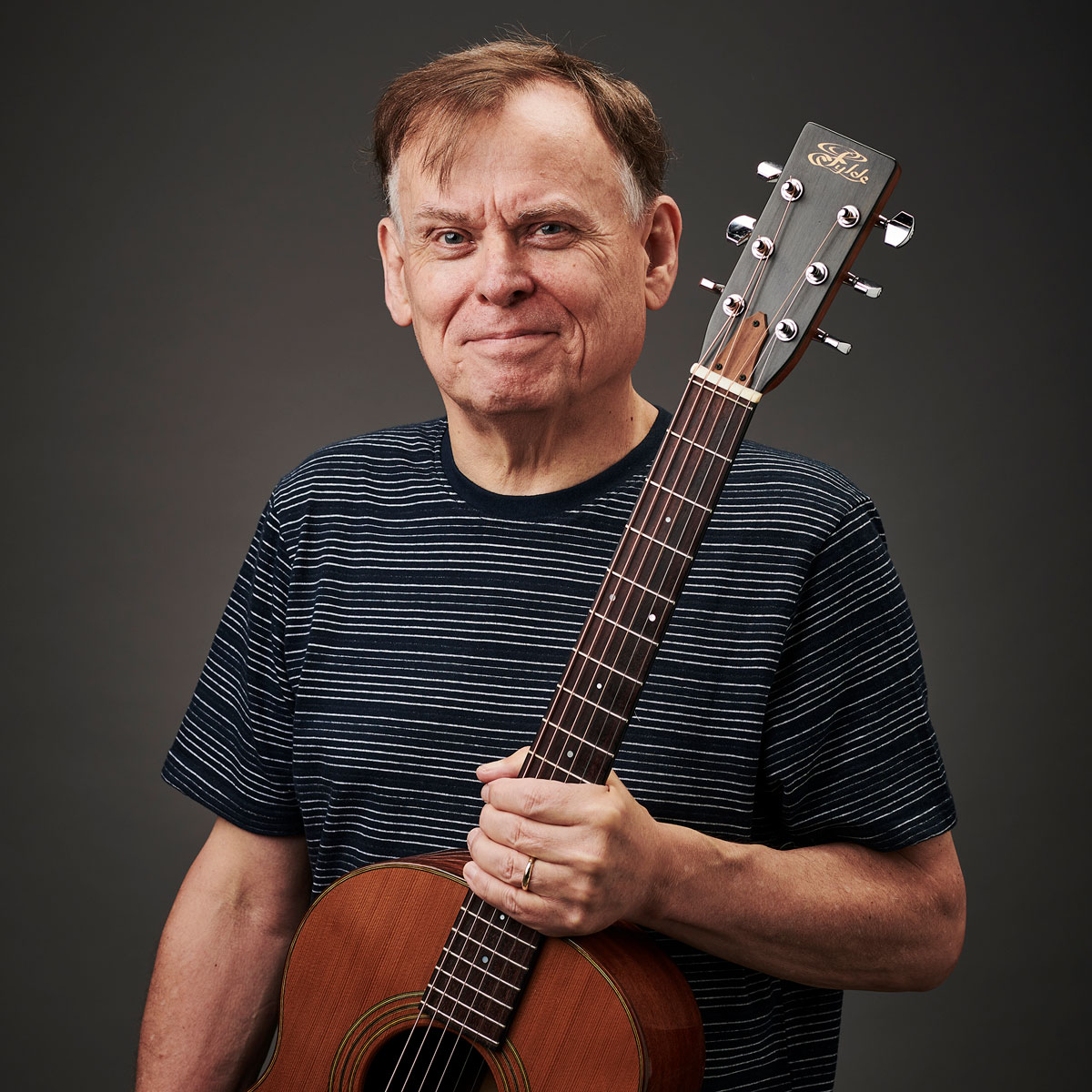“The White Falcon is a guitar of extreme beauty... there’s just no other way of looking at it. But I really couldn’t get on with it”: Darrel Higham on his Gretsch highs and lows – and why a 21st century rockabilly ace has a cheap Zoom multi-FX in his rig
A stolen treasured Gretsch and an unexpected love/hate relationship with White Falcons are all part of this rock ’n’ roller’s life in gear

Darrel Higham is this our guest in this edition of Bought & Sold, our very own group therapy session for gear nut professionals to share their stories of the most significant electric guitars in their lives – not to mention their best guitar-buying tips.
Those familiar with Higham’s sound will not be surprised to learn that Gretsch guitars feature prominently. We might be forever reminding players that a Gretsch is not just for rockabilly, but when you do play rockabilly there’s nothing quite like That Great Gretsch Sound.
What was the first serious guitar you bought with your own money?
“The first guitar I bought was a Gretsch 6120. It was one of the first batch of the reissue guitars in the late 80s that was brought into the country. I sold my 1957 Ford Consul, which was my pride and joy at the time, and that enabled me to buy the guitar because it was a huge sum of money in 1989.
“I was 19 years old and it was the guitar of my dreams. It was delivered to where my mum worked at the time and she called me and they’d put it in the conference room on this really big long table. I walked over and I was just knocked out by the beauty of it; it was an astonishing-looking guitar.
“But then I quickly realised that it wasn’t it wasn’t 100 per cent accurate with regards to how they were in the 50s. It had a lot of things that I wasn’t very happy with, but over the years I had it modified so that it looked more like Eddie Cochran’s 6120, which was my reason for buying it in the first place. But, unfortunately, by the time I’d got the finishing touches done to it, it was stolen from a theatre in Melton Mowbray in ’98.”

“I’ve never forgotten the serial number: it was 898120W‑40. It was the 40th made of the reissues – that’s what that 40 denotes. It was a very special guitar to me and I used it exclusively for years, really. It arrived in early 1990, very early 1990 – because I had to wait for it to be delivered from America – and I used it on everything for eight years. I didn’t even need to own another guitar, really. It was a complete joy and then it was stolen and that was the end of it.”
Get The Pick Newsletter
All the latest guitar news, interviews, lessons, reviews, deals and more, direct to your inbox!
Buy a guitar with the attitude that you’re never going to sell it. Because that way you’ll make it a guitar that is playable for you
What was the last guitar you bought?
“Very good question! I do tend to buy parlour guitars because they’re great to hang on the wall. But the last guitar I bought was probably my Custom Shop Gretsch, which I had made by Stephen Stern.
“It was made to the dimensions of a White Falcon, so it’s got the Falcon headstock, but I wanted it finished like a 6120. It was kind of a one-off, really, and I gave it the number 5170 because that’s my date of birth. So I call it the ‘Gretsch 5170’ and I use that pretty much as my gigging guitar.
“I’ve bought the odd acoustic every now and then, but I don’t really consider them to be guitars worth noting because they sort of come and go. And I’ve bought the odd sort of Strat copy and Telecaster copy just to have around the house, but, again, they come and go.”

What’s the strongest case of buyer’s remorse you’ve experienced?
“It was a White Falcon. The White Falcon is a guitar of extreme beauty. I mean, there’s just no other way of looking at it. You just see it and you think, ‘That is the Cadillac of guitars.’ It’s just so over the top and I just thought I’ve got to have one. The first one was given to me, actually, when I first joined Gretsch, but I really couldn’t get on with it because it had a very different neck from the 6120.
“I was so upset. I thought I couldn’t justify just keeping it and not using it and so I eventually sold it – and then really regretted it because it’s such an aesthetically pleasing guitar. And then when things started going with Imelda [May] I bought another one and had the same problem again, and I just thought, ‘I should really learn from this!’”
What’s your best guitar-buying tip?
“Well, a guitar’s got to be robust. It’s got to be able to deal with the rigours of constant gigging. But also it’s got to be practical. There’s things that you can do to make that happen anyway, once you’ve bought the guitar, but also I think the very important thing is to buy a guitar with the attitude that you’re never going to sell it. Because that way you’ll make it a guitar that is playable for you.
Playing a guitar is like playing a sport, you know? If you’re confident in what you do, you’re going to do well
“It doesn’t matter what happens when, if the time comes, you decide to sell it because hopefully you’ll be customising it in such a way that it’s a better guitar – because no guitar that comes from the factory is ever truly playable. I mean, it really isn’t. You have to make it your guitar. But what you’re going to do to that guitar is hopefully going to benefit another player if you do decide to sell it on.
“So I think you should always go in with the attitude that you’re going to keep it. But it has to be a guitar that you would feel comfortable playing in a pub, studio, in a concert hall or whatever.”
If forced to make a choice, would you rather buy a really good electric guitar and a cheap amp, or a cheap guitar and a top-notch guitar amp?
“It would always be a really good guitar because I would expect the guitar to sound great through whatever amp you’re using. But also, playing a guitar is like playing a sport, you know? If you’re confident in what you do, you’re going to do well. And I think that when it comes to playing the guitar, the tone of the guitar is probably secondary to playability.
“If you feel that the guitar that you’re playing is made for you, whenever you pick it up you just feel that you’re playing to the very best of your ability. It inspires you to play brilliantly, or it brings out the greatness in you that you didn’t think you had, which is what a guitar should do. Then you’re not going to be too worried about the tone of it because you’re always going to feel that you’ve played at your best.”

Darrel’s Go-To Rig
“It’s very, very simple. I use a Peavey Delta Blues amp with a 15-inch speaker. I’ve been using it for probably 20 years now, or maybe even longer than that, I’m not sure. I have the ‘5170’ Falcon, which is my main gigging guitar, and I sometimes bring an Eddie Cochran signature 6120 that Gretsch gave to me a few years back, and I tend to take that guitar when I’m playing abroad; I won’t take the ‘5170’.
“Pedal-wise, I use a Zoom G2 multi-effects pedal. I’ve been using Zoom for probably 25 years, maybe even longer than that – to be honest with you, simply because they’re very inexpensive.
“The other thing that I use is an Electro-Harmonix Pitch Fork, and that is a wonderful tool for me as a singer/guitarist because, with my three-piece, I’ve got my bass player and a drummer, so I’m playing lead, rhythm and singing. Certain songs I just can’t sing in the keys that they’re in, but with this pedal, I can drop the tuning down a whole tone.”
- Higham's 100 Rockabilly Licks For Guitar is out now via Fundamental Changes.
With over 30 years’ experience writing for guitar magazines, including at one time occupying the role of editor for Guitarist and Guitar Techniques, David is also the best-selling author of a number of guitar books for Sanctuary Publishing, Music Sales, Mel Bay and Hal Leonard. As a player he has performed with blues sax legend Dick Heckstall-Smith, played rock ’n’ roll in Marty Wilde’s band, duetted with Martin Taylor and taken part in charity gigs backing Gary Moore, Bernie Marsden and Robbie McIntosh, among others. An avid composer of acoustic guitar instrumentals, he has released two acclaimed albums, Nocturnal and Arboretum.
“Our answer to everything players have asked for and more”: Neural DSP’s Nano Cortex had one major drawback – but now it’s been addressed with a huge free firmware update that takes on Kemper and TONEX
“One of the most genuinely unique guitar tones I’ve ever heard”: Submarine Pickups Subsix review





![[from left] George Harrison with his Gretsch Country Gentleman, Norman Harris of Norman's Rare Guitars holds a gold-top Les Paul, John Fogerty with his legendary 1969 Rickenbacker](https://cdn.mos.cms.futurecdn.net/TuH3nuhn9etqjdn5sy4ntW.jpg)







